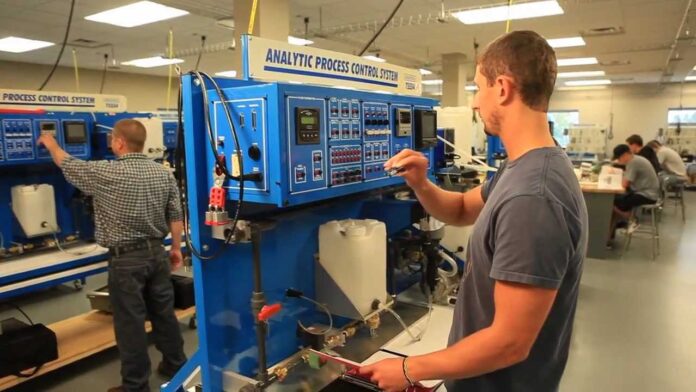Instrumentation and control engineering is a scientific field of study that deals with the measurement and control of phenomena like temperature, pressure, and flow. The goal is to automate all these processes during any industrial endeavor. PPS Professional Process Systems heater exchanger systems are good examples of automated instrumentation and control systems.
The International Society of Automation (ISA) defines automation as an assortment of instruments and their uses for purposes of control, measurement, and observation, pressure transducers.
Instrumentation and Control
Overall control of processes can be simple or complex, depending on the variables or phenomena in question. An instrument is defined as a device used to manipulate or gauge these variables, including temperature, flow level, among others. Instruments can be your typical thermometer used to gauge the temperature of a fluid tank or something as complex as an analyzer required for complicated analysis.
Circuit breakers, solenoids, and relays comprise control instrumentation devices. These devices can alter certain parameters while giving automated control capabilities in the process.
Control and instrumentation processes may involve analog and digital signals—the former being continuous types while the latter are time-separated. In such processes, analog signals are produced by devices called transmitters, usually as a 4-20ma electrical current signal. This is one of many such voltage variations that can be produced.
Such signals can be used for the direct manipulation of other instruments. Sometimes, they can be sent to specific types of computerized controllers. These controllers interpret these signals into recognizable numerical values for controlling and directing other devices and processes. Such computerized controllers include Programmable Logic Controller (PLC), Distributed Control System (DCS), Supervisory Control Data Acquisition (SCADA), among others.
A control loop is a technical term used by design engineers to refer to the systems used to control certain industrial processes and maintain set points (SPs). Instrumentation is a key part of a control loop, helping both in the gathering of information in the field and changing field parameters as needed.
Measurement
Gathering physical values in the field is a crucial aspect of instrumentation. The physical values may include temperature, radiation, viscosity, differential or static pressure, and so many more.
Instrumentation is also key to controlling all these parameters, whether in the field or in any closed industrial setting.
Instrumentation Engineering
This engineering specialization focuses on how measurement instruments work. It deals with the analysis of how these instruments are used in the configuration and design of automated systems, be they complex or simple. Such configurations can include work involving pneumatic or electrical domains.
Chemical and other processing plants are prime examples where industrial processes require precision, reliability, safety, and improved process optimizations. Instrumentation engineering helps to make these processes run smoothly.
Several components are usually involved in the process control of any given system. Devices such as microcontrollers, microprocessors, or any other computerized controllers like SCADA can be used for the control of the different parameters within a given system.
Examples of How Instrumentation and Control Engineering Work in the Real World
1)Industrial Automation
Industrial processes are perhaps the biggest beneficiaries of all the advances in the instrumentation and control engineering field. To ensure quality, efficiency, and yield, instrumentation helps to streamline many of the crucial steps needed in the manufacturing process of numerous products. They do this by monitoring several variables like temperature and pressure, providing the timely feedback needed to correct any undesired deviations.
2) Healthcare
As technology is integrated more and more into the healthcare system, instrumentation and control engineering continue to simplify and optimize certain processes and tasks. Humans are prone to make mistakes when performing repetitive tasks for prolonged periods of time. For example, maintaining a contaminant-free zone in a hospital or a laboratory is best done using computers, which in turn require the principles of instrumentation to carry out such tasks. Instrumentation can help to detect the spread of biohazards and pathogens by sounding alarms to alert people of possible danger, thereby enabling countermeasures to be implemented.
3) Research and Analysis
Analytical instruments greatly rely on instrumentation and control engineering. Material analysis, for example, is crucial for those carrying out research in the field. They rely on the information-gathering capabilities of control engineering in the form of microprocessors and analyzers. These tools provide critical data that can be analyzed. Temperature and humidity variations are some of the many data points that can be analyzed using instrumentation devices.
Control Engineers
Instrumentation and control engineering can help simplify many complicated tasks that humans cannot perform efficiently. However, to set them up, control engineers are needed. They not only design the different aspects and tools for instrumentation but also help to monitor it in case there’s a hitch in the system.
Instrumentation and control engineering will continue to play a crucial role in many endeavors for the foreseeable future.























